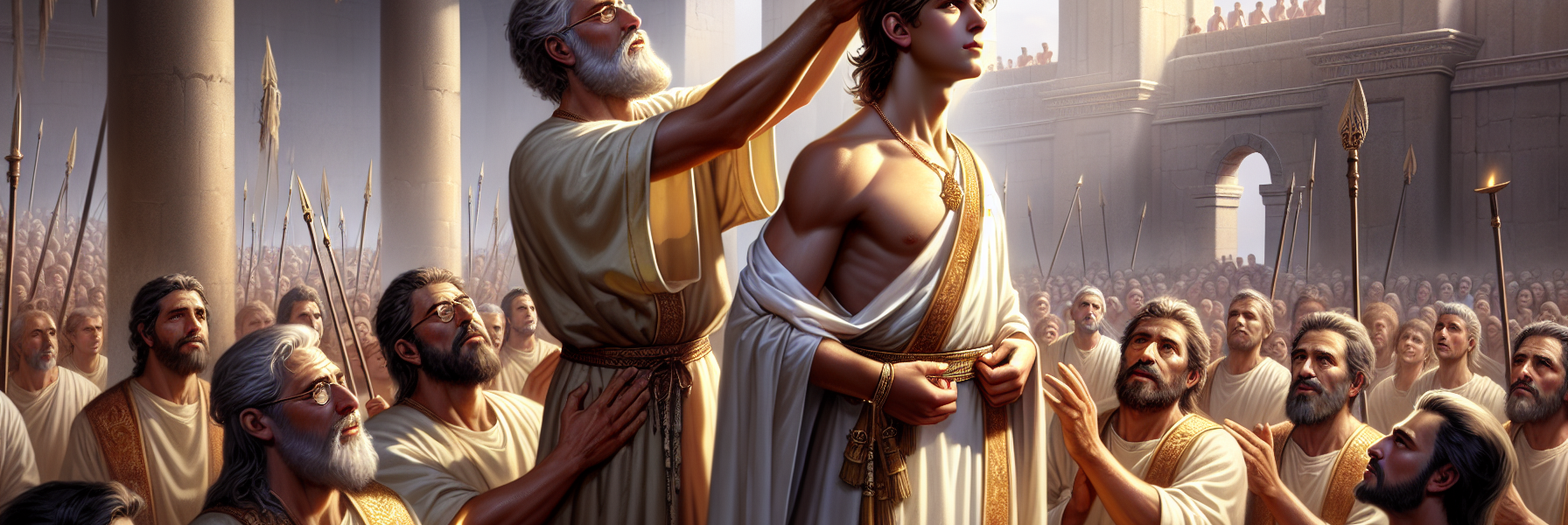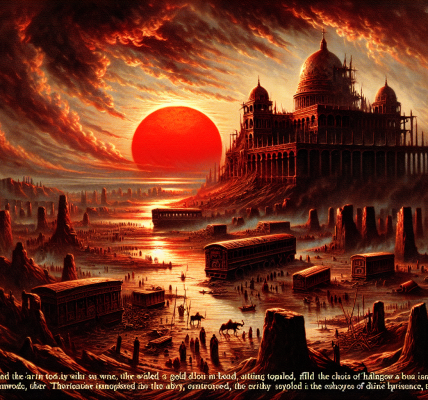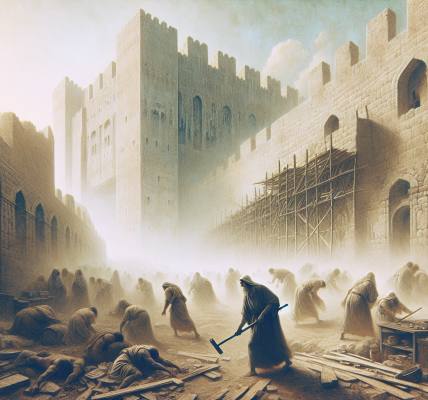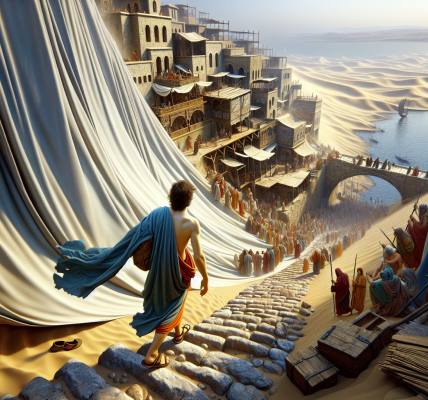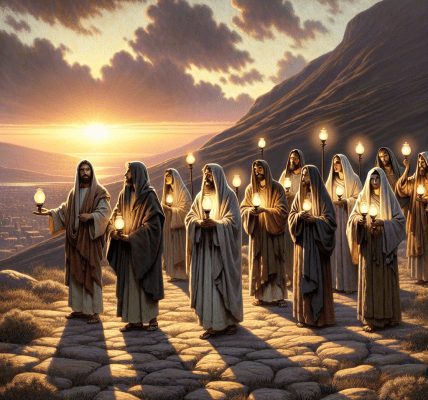**The Rise and Fall of King Uzziah**
In the days when the kingdom of Judah sought stability after the turbulent reign of Amaziah, his son Uzziah ascended to the throne at the tender age of sixteen. The people of Jerusalem watched with cautious hope as the young king took up the mantle of leadership, unaware that his reign would be marked by both extraordinary triumph and tragic downfall.
### **A Reign Begun in Righteousness**
Uzziah, also called Azariah, was crowned in the presence of the priests and elders, the sacred oil anointing his brow as the weight of kingship settled upon his shoulders. From the beginning, he sought the Lord with a sincere heart, guided by the prophet Zechariah, a man of deep wisdom and understanding in the visions of God. Under Zechariah’s instruction, Uzziah learned to fear the Lord and walk in His ways.
The young king’s devotion bore fruit swiftly. He fortified the nation’s defenses, rebuilding the towers of Jerusalem at the Corner Gate, the Valley Gate, and the Angle—massive stone structures that loomed over the city, their heights manned by vigilant watchmen. Beyond the capital, he strengthened the walls of the outlying towns and established fortified outposts in the wilderness, ensuring that Judah’s borders were secure against the marauding bands of Philistines and Arabians.
### **Victories and Prosperity**
Uzziah’s military prowess became legendary. He assembled a mighty army of over three hundred and seven thousand men, trained and ready for battle. Skilled craftsmen designed ingenious war machines—great catapults mounted on towers, capable of hurling massive stones and arrows with devastating precision. His fame spread as far as Egypt, for the Lord granted him success wherever he went.
The Ammonites brought him tribute, and his name was revered among the neighboring nations. He dug countless cisterns for his vast herds and cultivated fertile lands, for he loved the soil and took great pleasure in seeing the earth yield its bounty. Vineyards stretched across the hills, and flocks multiplied in the pastures, for God had blessed the work of his hands.
### **The Seeds of Pride**
Yet, as his power grew, so did the subtle corruption of pride. Year after year, victory followed victory, and the once-humble king began to see his greatness as his own achievement rather than the gift of God. His heart, once tender toward the Lord, grew hardened with self-reliance.
Then came the fateful day when Uzziah, emboldened by his earthly authority, resolved to enter the temple of the Lord to burn incense upon the golden altar—a sacred duty reserved only for the consecrated priests of Aaron’s line. The high priest Azariah, a man of unwavering courage, stood against the king, backed by eighty faithful priests.
“Uzziah!” Azariah cried, barring his way before the altar of incense. “It is not for you to burn incense to the Lord! This holiness belongs to the priests, the sons of Aaron, who are consecrated for this sacred duty! Leave the sanctuary, for you have trespassed against the Lord! You shall receive no honor from Him for this!”
### **The Judgment of God**
Fury darkened Uzziah’s face as he gripped the censer, refusing to relent. But before he could pour out the incense, the hand of the Lord struck him. A searing pain erupted on his forehead, and the horrified priests recoiled as the dreaded white patches of leprosy spread across his skin. The censer clattered to the ground, its coals scattering in a shower of sparks.
“Leprosy!” the priests cried, rushing him out of the temple. Even Uzziah himself, trembling with terror, hastened to leave, for he knew the Lord had judged him in that instant. From that day forward, he lived in isolation, cut off from the house of the Lord and the throne he once ruled. His son Jotham governed the people in his stead, while Uzziah dwelt in a separate house, a leper until the day of his death.
### **The End of a Once-Great King**
When Uzziah finally breathed his last, they buried him in a field near the royal tombs, but not within them, for his leprosy had made him unclean. The people remembered his mighty deeds, his victories, and his downfall—a solemn reminder that no man, no matter how favored by God, is above His law.
Thus ended the reign of Uzziah, a king who began in humility, flourished in power, but fell by pride. His story echoed through generations, a warning that true strength lies not in earthly might, but in walking humbly before the Lord.
